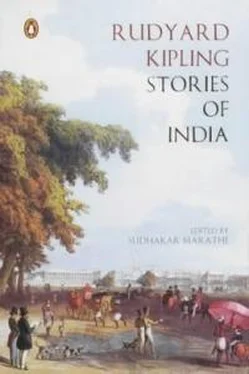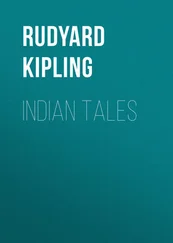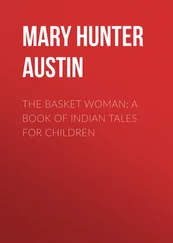"What a scoundrel!"
"I should say he was. He never gave us enough to eat, and sometimes we were so thirsty that we used to drink salt–water. I can taste that salt–water still."
"Now tell me something about the harbor where the fight was fought."
"I didn't dream about that. I know it was a harbor, though; because we were tied up to a ring on a white wall and all the face of the stone under water was covered with wood to prevent our ram getting chipped when the tide made us rock."
"That's curious. Our hero commanded the galley, didn't he?"
"Didn't he just! He stood by the bows and shouted like a good 'un. He was the man who killed the overseer."
"But you were all drowned together, Charlie, weren't you?"
"I can't make that fit quite," he said, with a puzzled look. "The galley must have gone down with all hands, and yet I fancy that the hero went on living afterward. Perhaps he climbed into the attacking ship. I wouldn't see that, of course. I was dead, you know." He shivered slightly and protested that he could remember no more.
I did not press him further, but to satisfy myself that he lay in ignorance of the workings of his own mind, deliberately introduced him to Mortimer Collins's "Transmigration," and gave him a sketch of the plot before he opened the pages.
"What rot it all is!" he said, frankly, at the end of an hour. "I don't understand his nonsense about the Red Planet Mars and the King, and the rest of it. Chuck me the Longfellow again."
I handed him the book and wrote out as much as I could remember of his description of the sea–fight, appealing to him from time to time for confirmation of fact or detail. He would answer without raising his eyes from the book, as assuredly as though all his knowledge lay before him on the printed page. I spoke under the normal key of my voice that the current might not be broken, and I know that he was not aware of what he was saying, for his thoughts were out on the sea with Longfellow.
"Charlie," I asked, "when the rowers on the gallies mutinied how did they kill their overseers?"
"Tore up the benches and brained 'em. That happened when a heavy sea was running. An overseer on the lower deck slipped from the centre plank and fell among the rowers. They choked him to death against the side of the ship with their chained hands quite quietly, and it was too dark for the other overseer to see what had happened. When he asked, he was pulled down too and choked, and the lower deck fought their way up deck by deck, with the pieces of the broken benches banging behind 'em. How they howled!"
"And what happened after that?"
"I don't know. The hero went away—red hair and red beard and all. That was after he had captured our galley, I think."
The sound of my voice irritated him, and he motioned slightly with his left hand as a man does when interruption jars.
"You never told me he was red–headed before, or that he captured your galley," I said, after a discreet interval.
Charlie did not raise his eyes.
"He was as red as a red bear," said he, abstractedly. "He came from the north; they said so in the galley when he looked for rowers—not slaves, but free men. Afterward—years and years afterward—news came from another ship, or else he came back"—
His lips moved in silence. He was rapturously retasting some poem before him.
"Where had he been, then?" I was almost whispering that the sentence might come gentle to whichever section of Charlie's brain was working on my behalf.
"To the Beaches—the Long and Wonderful Beaches!" was the reply, after a minute of silence.
"To Furdurstrandi?" I asked, tingling from head to foot.
"Yes, to Furdurstrandi," he pronounced the word in a new fashion. "And I too saw"―The voice failed.
"Do you know what you have said?" I shouted, incautiously.
He lifted his eyes, fully roused now, "No!" he snapped. "I wish you'd let a chap go on reading. Hark to this:
"'But Othere, the old sea captain,
He neither paused nor stirred
Till the king listened, and then
Once more took up his pen
And wrote down every word,
"'And to the King of the Saxons
In witness of the truth,
Raising his noble head,
He stretched his brown hand and said,
"Behold this walrus tooth."'
By Jove, what chaps those must have been, to go sailing all over the shop never knowing where they'd fetch the land! Hah!"
"Charlie," I pleaded, "if you'll only be sensible for a minute or two I'll make our hero in our tale every inch as good as Othere."
"Umph! Longfellow wrote that poem. I don't care about writing things any more. I want to read." He was thoroughly out of tune now, and raging over my own ill–luck, I left him.
Conceive yourself at the door of the world's treasure–house guarded by a child—an idle irresponsible child playing knuckle–bones—on whose favor depends the gift of the key, and you will imagine one half my torment. Till that evening Charlie had spoken nothing that might not lie within the experiences of a Greek galley–slave. But now, or there was no virtue in books, he had talked of some desperate adventure of the Vikings, of Thorfin Karlsefne's sailing to Wineland, which is America, in the ninth or tenth century. The battle in the harbor he had seen; and his own death he had described. But this was a much more startling plunge into the past. Was it possible that he had skipped half a dozen lives and was then dimly remembering some episode of a thousand years later? It was a maddening jumble, and the worst of it was that Charlie Mears in his normal condition was the last person in the world to clear it up. I could only wait and watch, but I went to bed that night full of the wildest imaginings. There was nothing that was not possible if Charlie's detestable memory only held good.
I might rewrite the Saga of Thorfin Karlsefne as it had never been written before, might tell the story of the first discovery of America, myself the discoverer. But I was entirely at Charlie's mercy, and so long as there was a three–and–six–penny Bohn volume within his reach Charlie would not tell. I dared not curse him openly; I hardly dared jog his memory, for I was dealing with the experiences of a thousand years ago, told through the mouth of a boy of to–day; and a boy of to–day is affected by every change of tone and gust of opinion, so that he lies even when he desires to speak the truth.
I saw no more of him for nearly a week. When next I met him it was in Gracechurch Street with a billhook chained to his waist. Business took him over London Bridge and I accompanied him. He was very full of the importance of that book and magnified it. As we passed over the Thames we paused to look at a steamer unloading great slabs of white and brown marble. A barge drifted under the steamer's stern and a lonely cow in that barge bellowed. Charlie's face changed from the face of the bank–clerk to that of an unknown and—though he would not have believed this—a much shrewder man. He flung out his arm across the parapet of the bridge and laughing very loudly, said:
"When they heard our bulls bellow the Skroelings ran away!"
I waited only for an instant, but the barge and the cow had disappeared under the bows of the steamer before I answered.
"Charlie, what do you suppose are Skroelings?"
"Never heard of 'em before. They sound like a new kind of seagull. What a chap you are for asking questions!" he replied. "I have to go to the cashier of the Omnibus Company yonder. Will you wait for me and we can lunch somewhere together? I've a notion for a poem."
"No, thanks. I'm off. You're sure you know nothing about Skroelings?"
"Not unless he's been entered for the Liverpool Handicap." He nodded and disappeared in the crowd.
Читать дальше












